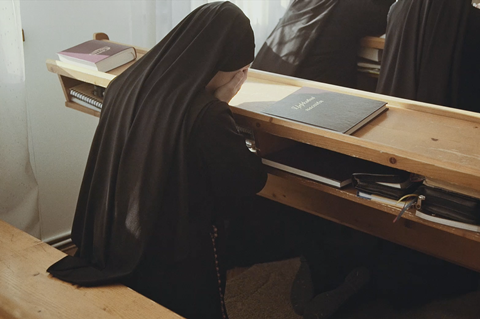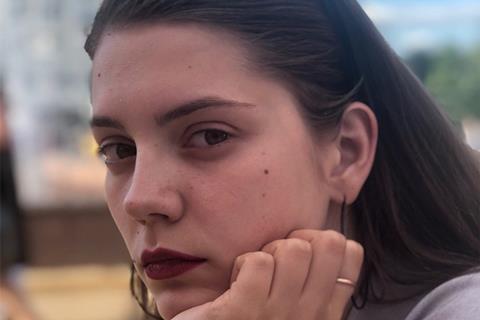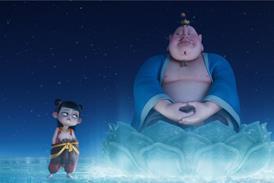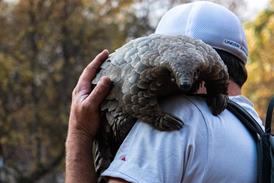
Ukrainian director Marta Smerechynska’s documentary Diary Of A Bride Of Christ world premieres at the Sarajevo Film Festival in the Documentary Competition.
Centred on a Greek Catholic Monastery in Western Ukraine, the documentary sees Smerechynska wrestle with her own complicated emotions about the very different life path chosen by her sister Nastia, who decided several years ago to join the monastery as a nun.
Produced by Natalia Libet of Ukraine’s Digital Religion and Vitalii Sheremetiev, Diary Of A Bride Of Christ won the East Silver Caravan Award and DOK Leipzig Award at Docudays UA 2020, as well as the Post-Production Film Award at the Baltic Sea Forum for Documentaries 2020. As yet, the documentary has no sales agent attached.
Smerechynska graduated from the I.K.Karpenko-Kary University in Kyiv in 2019 as an actress, and currently studies documentary directing at La Fémis’ Université d’eté while completing a master’s programme at DocNomads.

What inspired you to make the film?
I knew and had observed this monastery from early childhood, and always had a lot of questions about it. I was scared that maybe I had all these questions because it was my vocation, my calling, too. When my sister decided to go there, I was really angry.
Then I went to film university, and from that moment, I was not in contact with this religious world anymore.
Some years later, my sister had a ceremony there and I went, never imagining that it would have any particular effect on me, but I experienced something really strange and powerful. So, I decided to take my camera and to study this place, which not only welcomes my sister, but also more than a hundred Ukrainian girls. I was really interested in why young girls, from all the opportunities in their lives, would choose this one.
How did the project come together in terms of finding producers?
At first, there were just three of us: me, my director of photography, and a sound person — all of us women, because they wouldn’t let men film there. We were just a small team, filming without a producer or financing.
I didn’t even really know if the film would be interesting for others, it was just my personal investigation. But when we finished filming, I met our producer, who told me that when she was around 13 or 14 years old, she’d also had this desire to become a nun. So, we started working together, looking for financing and presenting our film to the film industry, and I realised the film was interesting to other people. Then we pitched the project a lot and received some awards, which helped us during the first steps of editing the film. Later, we also received financing from the Ukrainian film state agency.
Did you find that your work as an actress helped you while you were working on this project?
When working as an actress, you have to observe and read a lot, then try to understand how this world works and the relationships between characters. The monastery is a very closed community, with rules and values that you need to understand. I also knew the feeling of having a camera on you, so I knew how to make it more comfortable for them.
Did you have to work to gain the nuns’ confidence?
Before us, they did not have very good experiences with TV and newspapers, so they were a little scared. But they knew me, and I had some very emotional conversations with the mother superior, and she agreed to let us film. But of course, we needed time to get them used to our presence and gain their trust.
Are you working on any other projects now?
I am working on several projects. One is about a Ukrainian-Korean couple building their family and giving birth to a child, while they face bureaucracy, distances and differences in mentalities. I am also working on a feature film about the psychological conditions of women who reached the Ukrainian-Polish border after they were forced to leave the country during the war.
For now, I am in Paris working on a short film that personifies and gives a voice to the suitcases and belongings of people who were forced to flee their homes.
I didn’t imagine that I would work on something about the war. When the war started, I really didn’t want to, because when you are filming it, you are accepting that it is happening. But then, I was in a queue on the border for 10 hours one night, present at the moment when all those women first reached safety. I lived through that, then came back here to make something about it and explore my experience as well as theirs.

























No comments yet